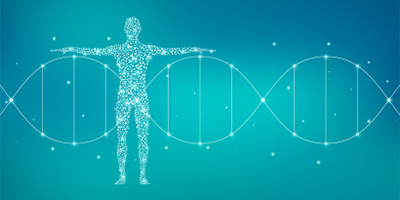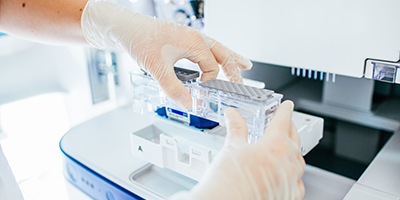
What is PGx Testing?
It is a Test to Examine Genetic Predisposition to Drug Responsiveness.

People respond differently to medications: even at standard doses, the effectiveness can vary, adverse effects may occur, or in some cases, an allergic reaction may develop to certain drugs.
These individual differences have various causes, but one important factor is variation in the individual genome. By analyzing genes, useful information can be obtained to estimate how an individual is likely to respond to medication.
Benefits of Taking the Test

By understanding your genetic predisposition to drug responsiveness, you can gain the following benefits:
- Avoid medications that may be ineffective for you
- Avoid drugs that carry a higher risk of adverse effects for you
- Prevent potential drug allergies in advance
As a result, you can receive safer and more reliable drug therapy.
Genetic information does not change throughout your life. This means that the results of a single test can be used for a lifetime. Therefore, not only for those currently undergoing medical treatment, but also for healthy individuals, taking the test proactively can help ensure safer and more effective drug therapy in the future.
How the Test Results Are Used

At ISEIKAI International General Hospital, the results of the pharmacogenomics test are strictly stored and managed, and are applied in our medical care. When a patient who has taken the test receives drug treatment at our hospital, their genetic information on drug responsiveness will be cross-checked with the prescribed medications. This allows us to select and prescribe the most effective and safe drugs and dosages tailored to the individual’s genetic profile.
Our expert staff will explain the results to you in detail and provide a written report. This report can also be used for medical care at other healthcare institutions.
For Those Who Would Like More Detailed Information
- This PGx test examines 20 genes with well-established medical evidence, based on the recommendations from the Japanese Society of Clinical Pharmacology and Therapeutics, international guidelines (Clinical Pharmacogenetics Implementation Consortium: CPIC® etc.), and pharmaceutical package inserts.
- The test focuses on germline pharmacogenomic genes that are related to drug responsiveness and pharmacokinetics, but does not include the cancer genome.
- The genes involved include drug-metabolizing enzymes, drug transporters, and HLA, focusing on key variants found in the Japanese population. The specific test items are listed at the bottom of this page.
- This is a self-funded test taken voluntarily, and not under a physician’s directive (in other words, a type of “genomice health screening”). It is not covered by a national health insurance.
- Please note that the test does not cover all medications. At present, it applies primarily to about 40 drugs recommended by the Japanese Society of Clinical Pharmacology and Therapeutics. However, the scope is expected to expand in the future as medical research continues to advance.
[Currently Covered Medications]
- Clopidogrel and warfarin, used in anticoagulant therapy
- Statins, used in the treatment of hypercholesterolemia
- Carbamazepine and phenytoin, used in the treatment of seizures
- Penicillin and aminoglycosides, used in the treatment of infections
and others
Genes Targeted by the Test
- CYP (Cytochrome P450)2A6, CYP2B6, CYP2C9, CYP2C19, CYP2D6, CYP3A5
- DPYD (dihydropyrimidine dehydrogenase)
- NAT2 (N-acetyltransferase 2)
- NUDT15 (Nudixhydrolase 15)
- TPMT (Thiopurine S-methyltransferase)
- UGT1A1 (Uridine diphosphate glucuronosyltransferase 1A1)
- SLCO1B1 (solute carrier organic anion transporter family member 1B1)
- ABCG2 (ATP-binding cassette subfamily G member 2)
- VKORC1 (vitamin K epoxide reductase complex subunit 1)
- HLA-A, HLA-B, HLA-DRB1, HLA-DQA1
- Mitochondrial gene mutation A1555G, C1494T








